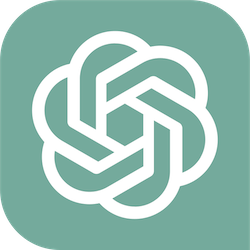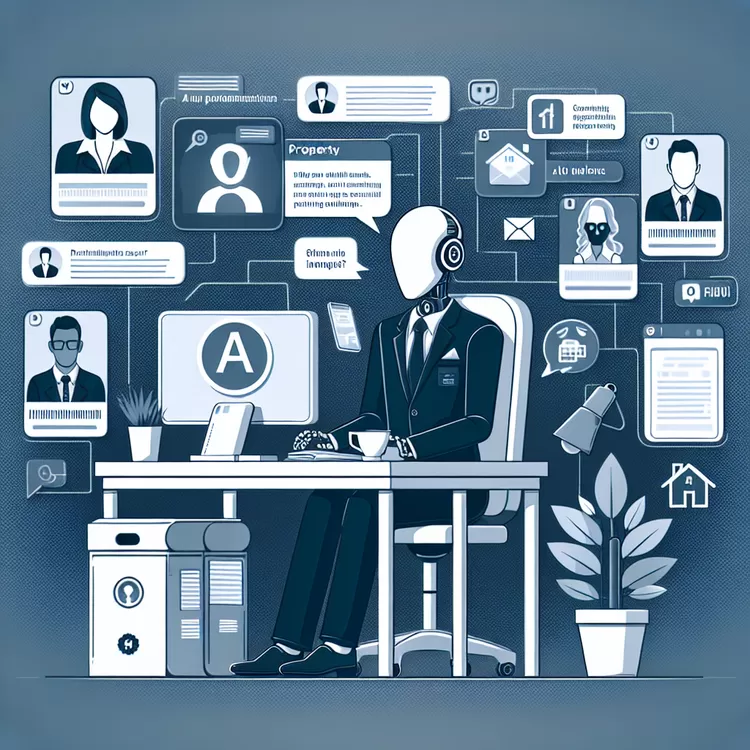Italy has banned the advanced chatbot ChatGPT due to concerns about privacy. ChatGPT was created by a US company called OpenAI and is supported by Microsoft. It can answer questions using natural language and additionally, it can mimic other writing styles. Although Microsoft has spent billions of dollars on ChatGPT and recently added it to Bing, there have been concerns about the potential risks of artificial intelligence (AI), including its threat to jobs and the spreading of misinformation and bias. The Italian data-protection authority said that it will investigate OpenAI to ensure it complies with General Data Protection Regulation (GDPR). GDPR governs the way personal data can be used, processed and stored. The watchdog said that the app had a data breach involving user conversations and payment information. OpenAI has 20 days to address the watchdog’s concerns, under a penalty of a fine of €20 million ($21.7m) or up to 4% of annual revenues.
Original news source: ChatGPT banned in Italy over privacy concerns (BBC)
Listen
Slow
Normal
Fast
Group or Classroom Activities
Warm-up Activities:
1. NAME OF ACTIVITY: Chatbot Role Play
Instructions: In pairs, one student will be the chatbot and the other will be the user asking questions. The chatbot should answer using natural language and try to mimic different writing styles. After a few minutes, switch roles.
2. NAME OF ACTIVITY: AI Risks Brainstorm
Instructions: In groups, have students brainstorm potential risks of artificial intelligence (AI), such as job loss, misinformation, and bias. Then, have each group share their ideas with the class.
3. NAME OF ACTIVITY: GDPR Match
Instructions: On the whiteboard, create a table with two columns. One column should list different types of personal data (e.g. name, address, credit card number) and the other column should list whether or not that type of data is governed by General Data Protection Regulation (GDPR). Have students work in pairs or small groups to fill in the table.
4. NAME OF ACTIVITY: AI Vocabulary
Instructions: Have students create a list of vocabulary words related to artificial intelligence (AI), such as “chatbot,” “bias,” and “data breach.” Then, have each student choose a word and try to define it for the class.
5. NAME OF ACTIVITY: Investigating OpenAI
Instructions: In pairs, have students research OpenAI and its chatbot ChatGPT. They should try to find information about the company’s compliance with General Data Protection Regulation (GDPR) and any recent news about data breaches or fines. After a few minutes, have each pair share their findings with the class.
Comprehension Questions:
1. Why did Italy ban ChatGPT?
2. Who created ChatGPT?
3. What can ChatGPT do?
4. What are some concerns about artificial intelligence (AI)?
5. What is GDPR and what does it govern?
6. Why is the Italian data-protection authority investigating OpenAI?
7. What happened with the data breach involving ChatGPT?
8. What could happen to OpenAI if they don’t address the watchdog’s concerns?
Go to answers ⇩
Listen and Fill in the Gaps:
Italy has banned the advanced chatbot ChatGPT due to concerns about (1)________. ChatGPT was created by a US company called OpenAI and is supported by (2)________. It can answer questions using natural language and additionally, it can mimic other writing (3)________. Although Microsoft has spent billions of dollars on ChatGPT and recently added it to Bing, there have been concerns about the potential risks of artificial intelligence (AI), including its threat to jobs and the spreading of (4)________ and (5)________. The Italian data-protection authority said that it will investigate OpenAI to ensure it complies with General Data Protection Regulation (GDPR). GDPR governs the way personal (6)________ can be used, processed and stored. The watchdog said that the app had a data breach involving user conversations and (7)________ information. OpenAI has 20 days to address the watchdog’s concerns, under a penalty of a fine of €20 million ($21.7m) or up to 4% of (8)________ revenues.
Go to answers ⇩
Discussion Questions:
Students can ask a partner these questions, or discuss them as a group.
1. Do you know what a chatbot is?
2. Have you ever used a chatbot before?
3. Do you think chatbots are helpful or scary?
4. What do you think about Italy banning ChatGPT?
5. Do you think privacy is important?
6. What is artificial intelligence (AI)?
7. Do you think AI is a good thing or a bad thing?
8. How do you think AI could affect jobs?
9. Have you ever heard of General Data Protection Regulation (GDPR)?
10. Do you think GDPR is important?
11. What is a data breach?
12. Have you ever had your personal information stolen?
13. Do you think OpenAI should be fined if they don’t fix the app?
14. Should companies be allowed to collect personal information from users?
15. What other concerns do you have about technology?
Individual Activities
Multiple Choice Questions:
1. What is ChatGPT?
(a) A type of car
(b) A type of food
(c) An advanced chatbot
(d) A type of animal
2. Who created ChatGPT?
(a) Apple
(b) OpenAI
(c) Google
(d) Amazon
3. What can ChatGPT do?
(a) Answer questions using natural language
(b) Fly like a bird
(c) Predict the weather
(d) Cook food
4. Why did Italy ban ChatGPT?
(a) It was too expensive
(b) It was too slow
(c) It was a threat to privacy
(d) It was too small
5. What does GDPR stand for?
(a) General Data Protection Regulation
(b) Great Dog Park Rules
(c) Global Dance Party Revolution
(d) Giant Dinosaur Protection Rule
6. What is the job of the Italian data-protection authority?
(a) To investigate OpenAI
(b) To sell ChatGPT
(c) To create a new chatbot
(d) To promote artificial intelligence
7. What was the data breach involving ChatGPT?
(a) User conversations and payment information
(b) User locations and phone numbers
(c) User birthdays and email addresses
(d) User favorite colors and hobbies
8. What is the penalty for OpenAI if it does not address the watchdog’s concerns?
(a) A fine of €20 million ($21.7m) or up to 4% of annual revenues
(b) A fine of €5 ($5.43)
(c) A free trip to Italy
(d) A promotion for ChatGPT
Go to answers ⇩
True or False Questions:
1. Italy has allowed ChatGPT to be used in the country.
2. ChatGPT is a chatbot that can answer questions in natural language.
3. Microsoft has spent billions of dollars on ChatGPT.
4. ChatGPT is not supported by Microsoft.
5. There are concerns about the potential risks of artificial intelligence.
6. The Italian data-protection authority will investigate OpenAI to ensure compliance with GDPR.
7. GDPR governs the way personal data can be used, processed and stored.
8. OpenAI does not have to address the watchdog’s concerns within 20 days.
Go to answers ⇩
Write a Summary:
Write a summary of this news article in two sentences.
Writing Questions:
Answer the following questions. Write as much as you can for each answer.
1. What is ChatGPT?
2. What can ChatGPT do?
3. Why did Italy ban ChatGPT?
4. What is the concern about artificial intelligence (AI)?
5. What could happen to OpenAI if they don’t address the watchdog’s concerns?
Answers
Comprehension Question Answers:
1. Why did Italy ban ChatGPT?
Answer: Italy banned ChatGPT because they were worried about people’s privacy.
2. Who created ChatGPT?
Answer: ChatGPT was created by a company called OpenAI.
3. What can ChatGPT do?
Answer: ChatGPT can answer questions using natural language and can also write like other people.
4. What are some concerns about artificial intelligence (AI)?
Answer: Some people are worried that AI might take away people’s jobs or spread wrong information.
5. What is GDPR and what does it govern?
Answer: GDPR is a law that says how people’s personal information can be used, kept, and shared.
6. Why is the Italian data-protection authority investigating OpenAI?
Answer: The Italian data-protection authority is investigating OpenAI to make sure they follow the GDPR law.
7. What happened with the data breach involving ChatGPT?
Answer: There was a problem with the way that ChatGPT saved people’s conversations and payment information.
8. What could happen to OpenAI if they don’t address the watchdog’s concerns?
Answer: OpenAI might have to pay a big fine or lose some of their money if they don’t fix the problems.
Go back to questions ⇧
Listen and Fill in the Gaps Answers:
1. privacy
2. Microsoft
3. styles
4. misinformation
5. bias
6. data
7. payment
8. annual
Go back to questions ⇧
Multiple Choice Answers:
1. What is ChatGPT?
Answer: (c) An advanced chatbot
2. Who created ChatGPT?
Answer: (b) OpenAI
3. What can ChatGPT do?
Answer: (a) Answer questions using natural language
4. Why did Italy ban ChatGPT?
Answer: (c) It was a threat to privacy
5. What does GDPR stand for?
Answer: (a) General Data Protection Regulation
6. What is the job of the Italian data-protection authority?
Answer: (a) To investigate OpenAI
7. What was the data breach involving ChatGPT?
Answer: (a) User conversations and payment information
8. What is the penalty for OpenAI if it does not address the watchdog’s concerns?
Answer: (a) A fine of €20 million ($21.7m) or up to 4% of annual revenues
Go back to questions ⇧
True or False Answers:
1. Italy has allowed ChatGPT to be used in the country.
Answer: False
2. ChatGPT is a chatbot that can answer questions in natural language.
Answer: True
3. Microsoft has spent billions of dollars on ChatGPT.
Answer: True
4. ChatGPT is not supported by Microsoft.
Answer: False
5. There are concerns about the potential risks of artificial intelligence.
Answer: True
6. The Italian data-protection authority will investigate OpenAI to ensure compliance with GDPR.
Answer: True
7. GDPR governs the way personal data can be used, processed and stored.
Answer: True
8. OpenAI does not have to address the watchdog’s concerns within 20 days.
Answer: False
Go back to questions ⇧












